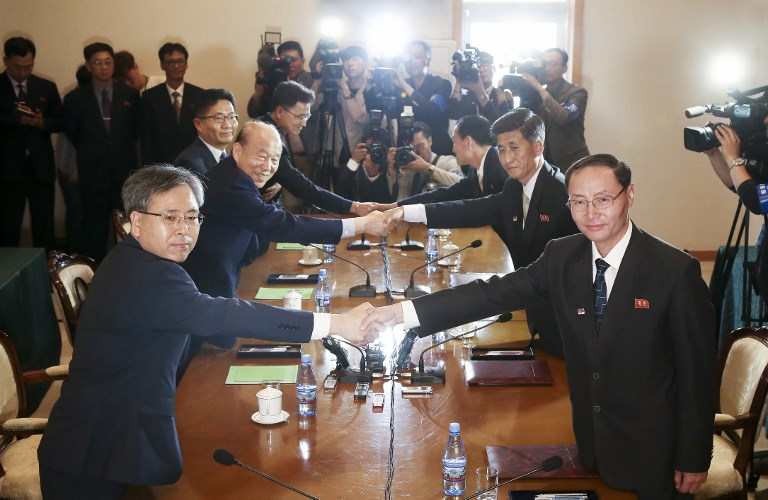
SEOUL, South Korea (AFP) — North and South Korea on Friday held Red Cross talks to discuss resuming reunions for families separated by the 1950-53 Korean War, the latest step in the diplomatic thaw on the peninsula.
Millions of people were separated during the conflict that sealed the division between the two Koreas nearly 70 years ago.
Most died without having a chance to see or hear from their relatives on the other side of the border, across which all civilian communication is banned.
The resumption of the family reunions — last held in 2015 — was one of the agreements reached between North Korean leader Kim Jong Un and the South’s president Moon Jae-in at their landmark summit in April.
Only about 57,000 people registered with the South Korean Red Cross to meet their separated relatives remain alive, most of them aged over 70.
Even if reunions are arranged, only 100 participants from each side will be selected.
For the lucky few chosen to take part, the experience is often hugely emotional, as they are given only three days to make up for decades of time apart, followed by another separation at the end, in all likelihood permanent.
“Let’s make the meeting a success by conducting it from a humanitarian perspective,” said the South’s chief delegate Park Kyung-seo, as he began discussions at North Korea’s scenic Mount Kumgang resort.
Pak Yong Il, Pyongyang’s chief delegate, responded: “The fact that the North and South are holding the first Red Cross talks in our famous Mount Kumgang is meaningful in itself.”
The reunion programme began in earnest after a historic inter-Korean summit in 2000 and they were initially held annually, but strained cross-border relations have made them rare.
Pyongyang has a lengthy track record of manipulating the divided families’ issue for political purposes, refusing proposals for regular reunions and cancelling scheduled events at the last minute.
North Korea has previously demanded it will not agree to family reunions unless Seoul returns several of its citizens, including a group of waitresses who defected from a restaurant in China.
© Agence France-Presse








